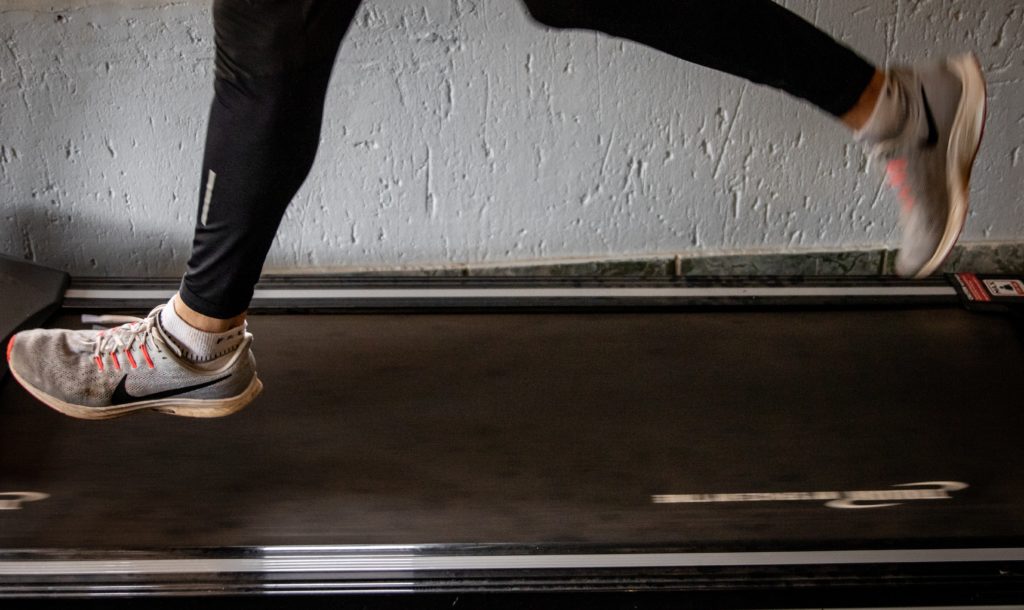Retired Running Shoes

After you’ve been running for a while in those once new shoes, you’ll find yourself saying, ”Wow! My shoes don’t feel like they used to.” Your legs, shins, and ankles are more tired, and running just feels flat. It could be that it is time to retire your running shoes.
Common Questions About Running Shoes
- How long can I expect running shoes to last?
- When is it time to retire a pair of running shoes?
- What can I do with old running shoes?
Retiring a pair of running shoes is never easy. You probably have an attachment to the shoes, and they might have even helped you set a personal best. But there comes a time in every running shoe’s life when it no longer providing enough cushion. No shoes last forever!
No two pairs of running shoes have the same life, and how long they will last is dependent on several factors.
Factors That Determine The Life Of Your Running Shoe
- Your gait cycle. Some people are harder on their shoes.
- The temperature. Cold weather can break down running shoes faster.
- Where you are running. Pavement is usually harder on running shoes than softer ground or even the treadmill.
- The type of shoe. Racing and carbon plated shoes last significantly less time than daily trainers.
- When you wear them. Yes, you can wear your running shoes outside of “just running,” but they will wear out faster if you do. Walking around the grocery store counts as miles put on your shoes.
Every single running shoe lasts differently, and it also lasts differently for each person. The short answer to, “How long do my running shoes last?” is, “When they stop feeling good.” When you feel more sore than usual, it could be the shoes. Typically, if your knees, shins, ankles, or hips are sorer and you haven’t done anything differently, it could be the shoes. Another telltale sign is if both legs feel achy, not just one.
Many runners believe you can flip a shoe over and tell if it’s worn out, but running shoe technology is concentrated in the midsole of the shoe, not the outsole. But certainly, if your shoes are worn out on the bottom, it means there is little to no cushion left in the middle.
How Can You Get More Miles Out of Your Running Shoes?
Getting Fitted by a Professional
Having your feet professionally fitted at a running store ensures that you get the right pair for your gait and running needs. This will get you a shoe that is best fitted for your needs and will last longer for you. While some shoes are “good for you,” others are “great,” and the great pairs are the ones that are going to last the longest.
Take Care of Your Shoes
Taking proper care of your running shoes increases the mileage you will get out of them. Don’t leave them in extreme temperatures. Both the cold and extreme heat can break down the materials in the shoe.
Don’t wash them. I repeat, don’t put them in the washer or dryer. Instead, hose them off, remove the insoles, and let them air dry. Believe it or not, washers and dryers can knock several miles off the life expectancy of a running shoe. They cause the shoe to stretch out, while soap and heat can break down the technology in the shoe.
Use a Separate Pair of Shoes to Run Errands
If you “love the comfort” of your running shoe, it’s OK to get a second pair of the same exact shoe to use for errands. This means your running pair will last longer for running. You can also find cheaper and more casual shoes for errands, and keep your running shoes for running. This includes cross-training. There are many shoes that are better designed just for the gym. Using an old, retired pair of running shoes for the gym or errands is better than using your current pair.
What can you do with old running shoes?
When it’s time to retire your running shoes, consider donating or repurposing them.
- Donate them. While your running shoes may no longer be good for running, they can be used by those in need. Many programs like Soles 4 Souls take old running shoes. Many running specialty stores have boxes where you can donate your shoes to these programs.
- Use them for the gym or running errands. Even if your running shoes are no longer good to run in, they can still make a good cross-training, lawn-mowing, or errand- running shoe.
Nothing lasts forever but, by taking care of your running shoes, you can ensure that they last the longest possible time for you. Plus, they save you from a running injury caused by shoes that are past their intended life.

Hollie is a runner, hiker, swimmer, residing in California. She has worked in run specialty for nearly 8 years and has fit hundreds of people for shoes. Outside of the running world, she enjoys the general aviation world, her two cats, and spending time with her spouse.









